Informationen zur Zeitschrift
Startseite » Programm » IJAR 1-2017 | Free Contributions
IJAR 1-2017 | Free Contributions
Erscheinungsdatum : 13.03.2017
0,00 € - 29,00 €
Inhalt
IJAR – International Journal of Action Research
1-2017: Free Contributions
Gertjan Schuiling / Hans Vermaak: Four contexts of action research: Crossing boundaries for productive interplay
Joacim Rosenlund / Erik Rosell: Using dialogue arenas to manage boundaries between sectors and disciplines in environmental research projects
Alboni Marisa Dudeque Pianovski Vieira: Teaching in the History of Education: a transdisciplinary perspective
Nicolina Eriksson / Jan-Erik Romar / Ben Dyson: The Action Research story of a student–teacher: Change is not easy and it takes time, effort, and critical reflection
Vahid Rahmani Voqaruni / Behzad Ghonsooly / Reza Pishghadam: A Mixed Methods Research on Teachers‘ Beliefs about Action Research in Second Language Education
Download of Table of Contents / Inhaltsverzeichnis herunterladen
Download of single articles (partly in Open Access / partly fee-based): ijar.budrich-journals.com
You can register here for the IJAR alert.
Einzelbeiträge zum Download (teils Open Access / teils kostenpflichtig): ijar.budrich-journals.com
Sie können sich hier für den IJAR-Alert anmelden.
Zusätzliche Information
| Verlag | |
|---|---|
| ISSN | 1861-1303 |
| eISSN | 1861-9916 |
| Jahrgang | 13. Jahrgang 2017 |
| Ausgabe | 1 |
| Erscheinungsdatum | 13.03.2017 |
| Umfang | 94 |
| Sprache | Englisch |
| Format | 17 x 24 cm |
| DOI | |
| Open Access-Lizenz | |
| Homepage |
Autor*innen
Schlagwörteraction research, Boundaries, boundary work, Context, Contradiction, Cross sector collaboration, Curricular change, Design, Environmental science, History of education, Interactive research, Interview, Mixed-Methods-Designs, Physical education, Questionnaire, Student–teacher, teacher education, Teachers’ beliefs, Tension, Transdisciplinary, Transdisciplinary science
Abstracts
Four contexts of action research: Crossing boundaries for productive interplay (Gertjan Schuiling, Hans Vermaak)
This paper explores how action research takes place within and between four contexts: adding practical value, improving institutions, developing professions, and contributing to theory. We argue that action research is more than those activities conducted within these contexts: it is a process of handling the generative tensions in the boundary regions. Framing action research this way has proven helpful in recasting such tensions as meaningful, in thinking through research designs in teaching and practice, and in paying sufficient attention to boundary work. This model for conceptualising action research has been refined over two decades of practice and reflection by the authors. Keywords: Action research, context, tension, contradiction, boundary work, design
» Download Single Contribution Free of Charge (Budrich Journals) / Einzelbeitrag kostenlos herunterladen (Budrich Journals)
Using dialogue arenas to manage boundaries between sectors and disciplines in environmental research projects (Joacim Rosenlund, Erik Rosell)
An interactive research strategy, a form of action research, was used in two environmental research projects. This strategy emphasises a balance between research and practice. Further, the method of dialogue arenas was used, meaning the creation of different types of meeting places where research and practice interact with each other. This paper shows the strength of these dialogue arenas to identify and cross boundaries. During these dialogue arenas the interactive researcher encountered two such boundaries. The first boundary was found in the research system between social science and natural science. The second boundary was found in the practice system between the collaborating sectors. Dialogue arenas helped in managing these boundaries by clarifying the role of the social scientist, facilitating collaboration, and democratising the research process. Keywords: Interactive research, boundaries, cross-sector collaboration, transdisciplinary science, environmental science
» Download Single Contribution Free of Charge (Budrich Journals) / Einzelbeitrag kostenlos herunterladen (Budrich Journals)
Teaching in the History of Education: a transdisciplinary perspective (Alboni Marisa Dudeque Pianovski Vieira)
The study aims to discuss teaching with research in History of Education in a transdisciplinary perspective, using primary sources and new goals. In this way, subjects that were not of interest to traditional history such as educational institutions and the lives of teachers, were studied by the students of a Pedagogy course at a higher education institution. The methodology used was action research, which enabled academics, in addition to the development of skills related to historical research, to analyse data collected from sociological, political, legislative, economic and educational points of view, with links between these different areas. Theoretical support was sought in the work of Nicolescu (1997), Revel (1998), Nóvoa (2002) and Tripp (2005), among others. The results were favorable and showed that differentiated teaching practices enabled the understanding of historical facts in their interrelationships with other sciences. Keywords: History of Education, action research, transdisciplinary
» Download Single Contribution Free of Charge (Budrich Journals) / Einzelbeitrag kostenlos herunterladen (Budrich Journals)
The Action Research story of a student–teacher: Change is not easy and it takes time, effort, and critical reflection (Nicolina Eriksson, Jan-Erik Romar, Ben Dyson)
The purpose of this paper is to report on the pedagogical and research learning I experienced as a physical education student–teacher engaged in an action research project, for which I designed and implemented an innovative teaching model. In my roles as student–teacher and researcher, I wanted to examine the impact of using Sport Education in a Finnish school context by analysing and understanding my teaching as well as my students’ experiences. Data collection included my personal reflective journal, video observations, student group interviews, and student diaries. The results of this study reinforced previously reported benefits of Sport Education, although there are contextual and pragmatic issues that need to be acknowledged. Even though implementing a new pedagogical approach was time-consuming, stressful, and full of real-world challenges as well as the additional demands of the action research project, I still learned a great deal about teaching and research. Keywords: action research, physical education, student–teacher, curricular change, teacher education
» Download Single Contribution Free of Charge (Budrich Journals) / Einzelbeitrag kostenlos herunterladen (Budrich Journals)
A Mixed Methods Research on Teachers‘ Beliefs about Action Research in Second Language Education (Vahid Rahmani Voqaruni, Behzad Ghonsooly, Reza Pishghadam)
Despite the fact that the beliefs about action research (AR) are considered essential for teachers’ professional development, teachers’ beliefs about AR have not been studied in any systematic way in second language education. This study is thus an attempt to fill the gap through examining Iranian teachers’ beliefs about AR. The present study used a mixed methods design, i.e. questionnaire and interview, to gain a richer understanding of the participants’ beliefs about AR. The participants were 65 English teachers from 5 private English language teaching institutions. The findings revealed that most of the teachers equated AR with observation, had the ability to distinguish between AR and standard research, preferred collaborative AR, and, in contrast to the mainstream research, did not believe AR to be a way to professional development. The results also showed that while AR is not unknown among these teachers, its use is not widespread, which highlights the need for organizational, practical and intellectual support from responsible agencies. Keywords: teachers’ beliefs, action research, mixed methods design, questionnaire, interview
» Download Single Contribution Free of Charge (Budrich Journals) / Einzelbeitrag kostenlos herunterladen (Budrich Journals)
Inhalt
Inhalt
IJAR – International Journal of Action Research
1-2017: Free Contributions
Gertjan Schuiling / Hans Vermaak: Four contexts of action research: Crossing boundaries for productive interplay
Joacim Rosenlund / Erik Rosell: Using dialogue arenas to manage boundaries between sectors and disciplines in environmental research projects
Alboni Marisa Dudeque Pianovski Vieira: Teaching in the History of Education: a transdisciplinary perspective
Nicolina Eriksson / Jan-Erik Romar / Ben Dyson: The Action Research story of a student–teacher: Change is not easy and it takes time, effort, and critical reflection
Vahid Rahmani Voqaruni / Behzad Ghonsooly / Reza Pishghadam: A Mixed Methods Research on Teachers‘ Beliefs about Action Research in Second Language Education
Download of Table of Contents / Inhaltsverzeichnis herunterladen
Download of single articles (partly in Open Access / partly fee-based): ijar.budrich-journals.com
You can register here for the IJAR alert.
Einzelbeiträge zum Download (teils Open Access / teils kostenpflichtig): ijar.budrich-journals.com
Sie können sich hier für den IJAR-Alert anmelden.
Bibliografie
Zusätzliche Information
| Verlag | |
|---|---|
| ISSN | 1861-1303 |
| eISSN | 1861-9916 |
| Jahrgang | 13. Jahrgang 2017 |
| Ausgabe | 1 |
| Erscheinungsdatum | 13.03.2017 |
| Umfang | 94 |
| Sprache | Englisch |
| Format | 17 x 24 cm |
| DOI | |
| Open Access-Lizenz | |
| Homepage |
Produktsicherheit
Bewertungen (0)
Bewertungen
Es gibt noch keine Bewertungen.
Autor*innen
Autor*innen
Schlagwörter
Schlagwörteraction research, Boundaries, boundary work, Context, Contradiction, Cross sector collaboration, Curricular change, Design, Environmental science, History of education, Interactive research, Interview, Mixed-Methods-Designs, Physical education, Questionnaire, Student–teacher, teacher education, Teachers’ beliefs, Tension, Transdisciplinary, Transdisciplinary science
Abstracts
Abstracts
Four contexts of action research: Crossing boundaries for productive interplay (Gertjan Schuiling, Hans Vermaak)
This paper explores how action research takes place within and between four contexts: adding practical value, improving institutions, developing professions, and contributing to theory. We argue that action research is more than those activities conducted within these contexts: it is a process of handling the generative tensions in the boundary regions. Framing action research this way has proven helpful in recasting such tensions as meaningful, in thinking through research designs in teaching and practice, and in paying sufficient attention to boundary work. This model for conceptualising action research has been refined over two decades of practice and reflection by the authors. Keywords: Action research, context, tension, contradiction, boundary work, design
» Download Single Contribution Free of Charge (Budrich Journals) / Einzelbeitrag kostenlos herunterladen (Budrich Journals)
Using dialogue arenas to manage boundaries between sectors and disciplines in environmental research projects (Joacim Rosenlund, Erik Rosell)
An interactive research strategy, a form of action research, was used in two environmental research projects. This strategy emphasises a balance between research and practice. Further, the method of dialogue arenas was used, meaning the creation of different types of meeting places where research and practice interact with each other. This paper shows the strength of these dialogue arenas to identify and cross boundaries. During these dialogue arenas the interactive researcher encountered two such boundaries. The first boundary was found in the research system between social science and natural science. The second boundary was found in the practice system between the collaborating sectors. Dialogue arenas helped in managing these boundaries by clarifying the role of the social scientist, facilitating collaboration, and democratising the research process. Keywords: Interactive research, boundaries, cross-sector collaboration, transdisciplinary science, environmental science
» Download Single Contribution Free of Charge (Budrich Journals) / Einzelbeitrag kostenlos herunterladen (Budrich Journals)
Teaching in the History of Education: a transdisciplinary perspective (Alboni Marisa Dudeque Pianovski Vieira)
The study aims to discuss teaching with research in History of Education in a transdisciplinary perspective, using primary sources and new goals. In this way, subjects that were not of interest to traditional history such as educational institutions and the lives of teachers, were studied by the students of a Pedagogy course at a higher education institution. The methodology used was action research, which enabled academics, in addition to the development of skills related to historical research, to analyse data collected from sociological, political, legislative, economic and educational points of view, with links between these different areas. Theoretical support was sought in the work of Nicolescu (1997), Revel (1998), Nóvoa (2002) and Tripp (2005), among others. The results were favorable and showed that differentiated teaching practices enabled the understanding of historical facts in their interrelationships with other sciences. Keywords: History of Education, action research, transdisciplinary
» Download Single Contribution Free of Charge (Budrich Journals) / Einzelbeitrag kostenlos herunterladen (Budrich Journals)
The Action Research story of a student–teacher: Change is not easy and it takes time, effort, and critical reflection (Nicolina Eriksson, Jan-Erik Romar, Ben Dyson)
The purpose of this paper is to report on the pedagogical and research learning I experienced as a physical education student–teacher engaged in an action research project, for which I designed and implemented an innovative teaching model. In my roles as student–teacher and researcher, I wanted to examine the impact of using Sport Education in a Finnish school context by analysing and understanding my teaching as well as my students’ experiences. Data collection included my personal reflective journal, video observations, student group interviews, and student diaries. The results of this study reinforced previously reported benefits of Sport Education, although there are contextual and pragmatic issues that need to be acknowledged. Even though implementing a new pedagogical approach was time-consuming, stressful, and full of real-world challenges as well as the additional demands of the action research project, I still learned a great deal about teaching and research. Keywords: action research, physical education, student–teacher, curricular change, teacher education
» Download Single Contribution Free of Charge (Budrich Journals) / Einzelbeitrag kostenlos herunterladen (Budrich Journals)
A Mixed Methods Research on Teachers‘ Beliefs about Action Research in Second Language Education (Vahid Rahmani Voqaruni, Behzad Ghonsooly, Reza Pishghadam)
Despite the fact that the beliefs about action research (AR) are considered essential for teachers’ professional development, teachers’ beliefs about AR have not been studied in any systematic way in second language education. This study is thus an attempt to fill the gap through examining Iranian teachers’ beliefs about AR. The present study used a mixed methods design, i.e. questionnaire and interview, to gain a richer understanding of the participants’ beliefs about AR. The participants were 65 English teachers from 5 private English language teaching institutions. The findings revealed that most of the teachers equated AR with observation, had the ability to distinguish between AR and standard research, preferred collaborative AR, and, in contrast to the mainstream research, did not believe AR to be a way to professional development. The results also showed that while AR is not unknown among these teachers, its use is not widespread, which highlights the need for organizational, practical and intellectual support from responsible agencies. Keywords: teachers’ beliefs, action research, mixed methods design, questionnaire, interview
» Download Single Contribution Free of Charge (Budrich Journals) / Einzelbeitrag kostenlos herunterladen (Budrich Journals)


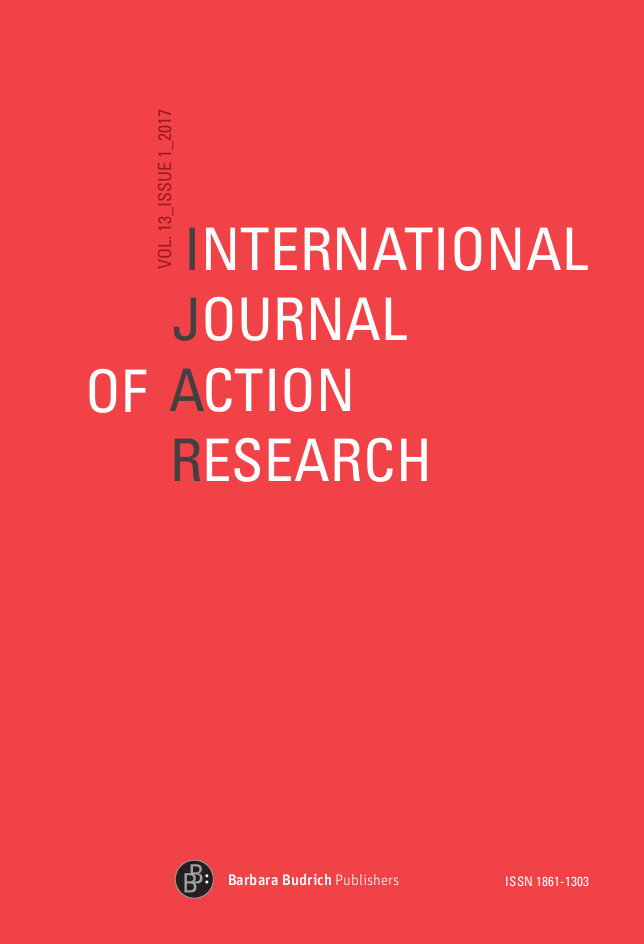

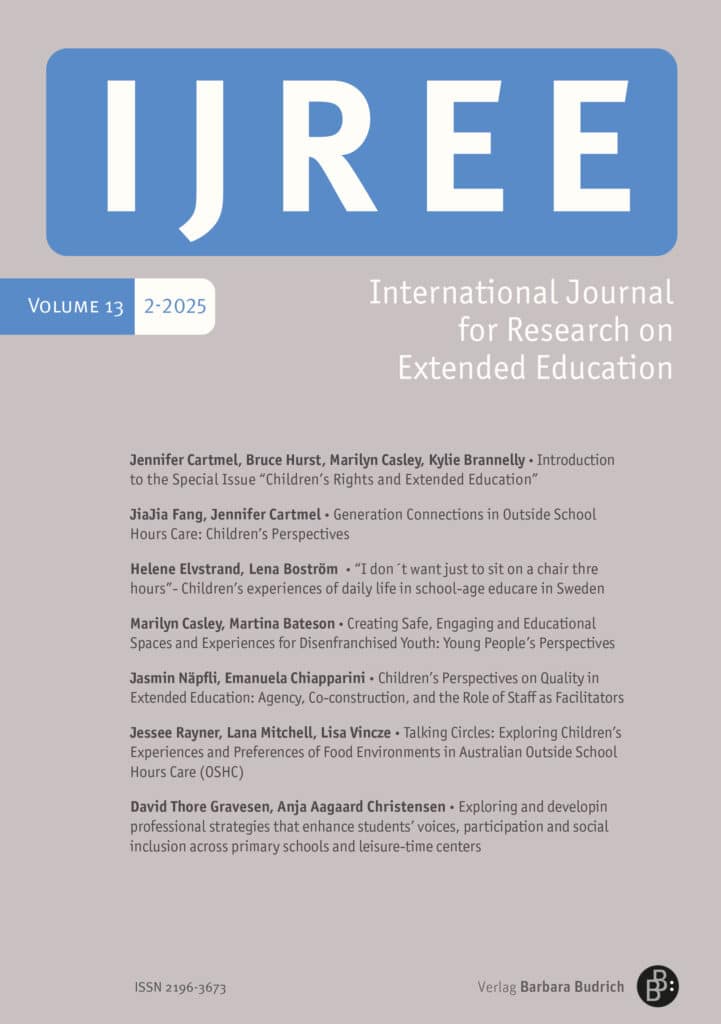

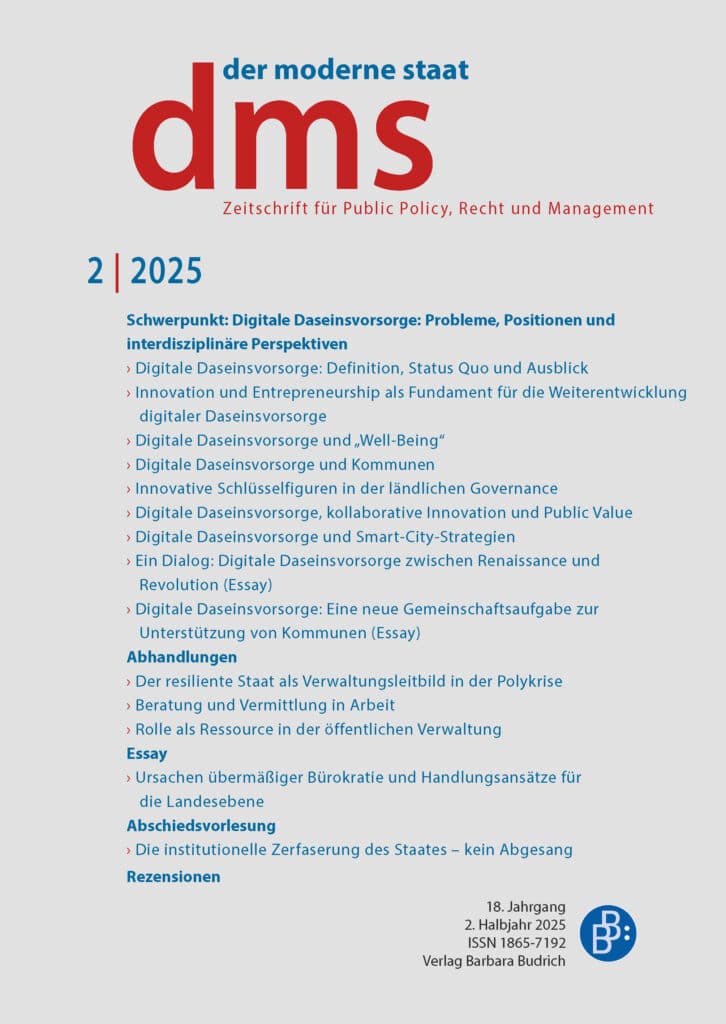
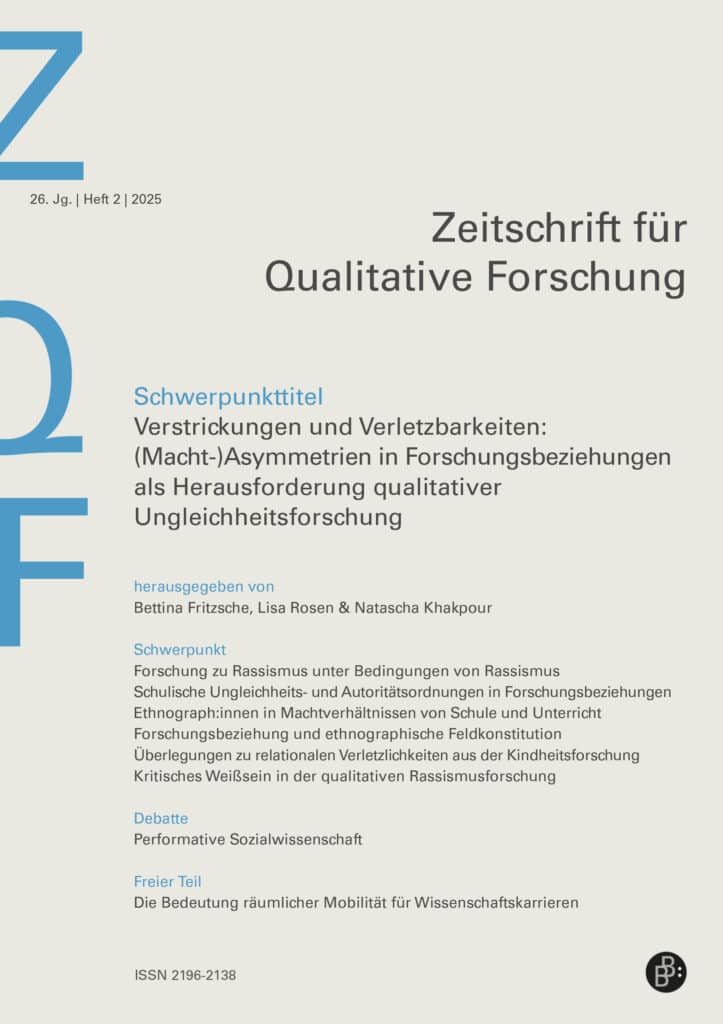
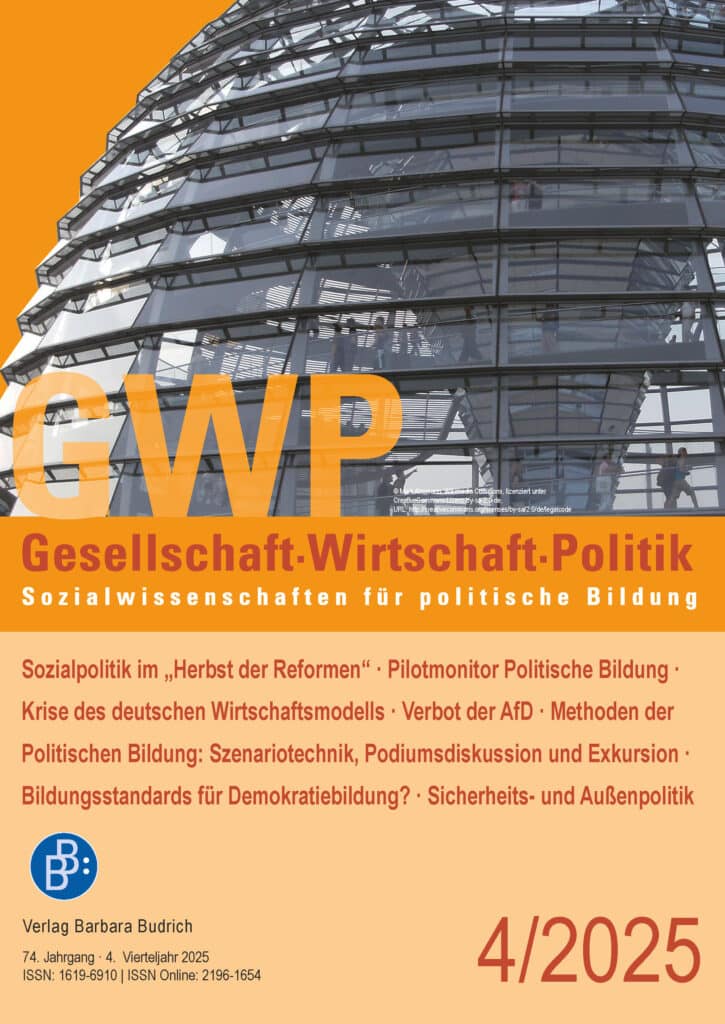

Bewertungen
Es gibt noch keine Bewertungen.